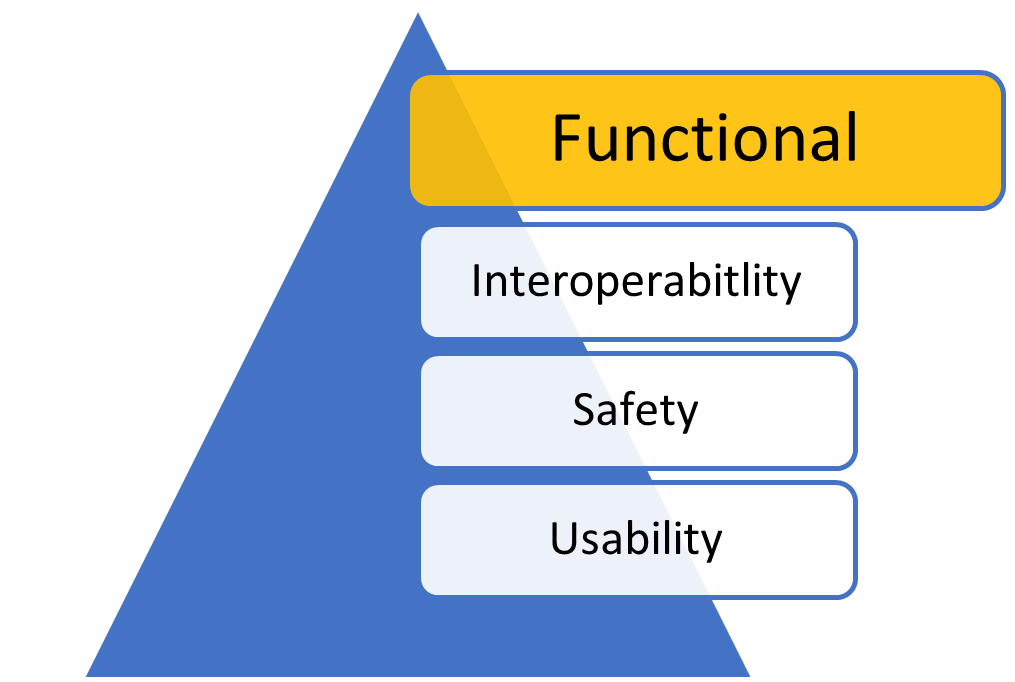Electronic Health Record System (EHR-S) Scorecard Toolkit
Module 2. Functional Requirements

|
The EHR-S functionalities module specifically focuses on clinical activities |
The functional requirements module refers to all the elements that make it possible to manage, store and provide data and information that can support the processes and functions carried out in health organizations.
The questions in this section include the concepts and requirements of an EHR-S and the questions they raise, making it possible to validate the adequacy of a given EHR-S to these requirements.
The equivalence to the HL7 functional model is included where appropriate equivalences have been located.
We have selected the most relevant functions and requirements for EHR-S users, doctors, nurses, and other professionals linked to care. Since the main objective of an EHR-S is to contribute to the best patient care, more relevance has been given to those functionalities that contribute directly to that end and are listed below.
- General Requirements
- Patient identification
- Personal data
- Uniqueness and registration
- Unique medical history
- Elements registered in the RM
- Prevention and education
- Vaccinations
- Social data
- Consulting
- Active diagnoses and history
- Constants and rating scales
- Medical orders
- Identification of chronic or complex patients
- Pharmacological prescription
- Laboratory
- Imaging
- Other complementary tests
- Scheduling of activities
- Last Wills
- Hospitalization
- Emergency care
- Inpatient Care Reports
- Informed consent
- Surgical treatments
- Non-surgical treatments
The requirements identified, the associated questions, and their equivalence to HL7 are detailed in the attached document below.
